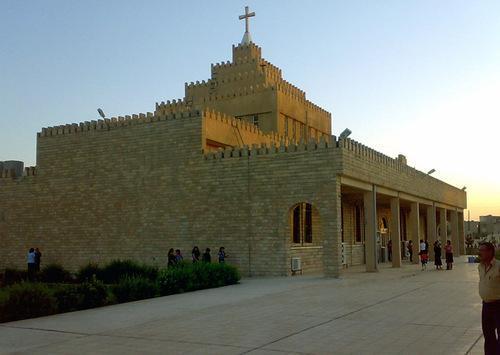Ankawa

Oct 21, 2014 Hero Anwar, who works for a local partner organization of the ecumenical ACT Alliance, explains the situation of families who have found refuge in Ankawa.
ANKAWA, ABRAHAM BEN MORDECAI (b. 1810), rabbi and kabbalist. Ankawa was born in Salé (Morocco). His family, probably of Spanish origin, had settled in Tlemcen (Algeria) and in Salé, where his father, Mordecai, was president of the community for a time. After serving as dayyan in his native town, Ankawa traveled to Leghorn about 1838 to arrange the printing of his first works. On his return he journeyed to many towns in Morocco and the Oran district, seeking material for his halakhic works. He was particularly interested in the unpublished research and rulings of old Castilian and North African rabbis, making extensive use of these and the works of authoritative European writers. His visits were usually short, but he stayed three years in Tlemcen and founded a talmudic academy there. He made a second trip to Leghorn in 1858.
The following works by Ankawa have been published: Zekhor le-Avraham (Leghorn, 1838), the rules of terefot in verse form, with a commentary based mainly on manuscripts by authoritative Fez writers, and an appendix containing four liturgical poems for the New Year by Spanish poets; Ḥukkat ha-Pesaḥ (1843), an Arabic paraphrase of memorial verses for seder nights; Kol Teḥinnah (1843), prayers for fasts and a few elegies; Ḥesed le-Avraham or Sha'ar ha-Shamayim (1845), a prayer book for the whole year arranged in accordance with the teachings of Isaac *Luria, containing the 'Idra Zuta,' various mystical prayers, formulas, directions, and explanations: this prayer book was later published in several revised editions and under various titles (Kol Bo, Limmudei ha-Shem, etc.); Ḥomer ha-Dat he-Attik (1844), a summary of Shefa Tal by Shabbetai Sheftel *Horowitz, printed as an appendix to Ḥayyim *Vital's Oẓerot Ḥayyim; Zevaḥim Shelamim, a double commentary to Maimonides' rules of ritual slaughter, together with the Maggid Mishneh, with source references by Judah Alkalaz: included in this volume were Get Mekushar and Seder Ḥaliẓah, on the arrangements for the bill of divorce and for ḥaliẓah by Judah ibn *Attar and Jacob *Ibn Ẓur; Yuẓẓa la-Rabbim (1858) concerning a dispute between Ankawa and some Algers rabbis; Kerem Ḥemed (1869–71), responsa in two volumes arranged according to the four parts of Shulḥan Arukh: the second volume also contains Sefer ha-Takkanot, the statutes of the Castilian communities in Fez (since 1492) and Et Sofer, on legal documents. The Sefer ha-Takkanot is based on a copy which was completed by Jacob ibn Ẓur in 1698, and also contains Kiẓẓut TakkanotOsmosis jones movie. , after the version of Raphael *Berdugo (no. 196). Unpublished works of Ankawa include: Oẓar Ḥokhmah, an abstract of Ḥayyim Vital's Oẓerot Ḥayyim; Afra de-Avraham and Millel le-Avraham, homilies; Seivat Avraham, novellae to a few talmudic tractates; and a Hebrew translation of the Arabic paraphrase of the Decalogue, formerly ascribed to *Saadiah Gaon.
bibliography:
Zedner, in: hb, 1 (1858), 113; Steinschneider, ibid., 16 (1876), 25, 33–35; Steinschneider, Arab Lit, 268; J.M. Toledano, Ner ha-Ma'arav (1911), 209; J. Syberiada polska. Ben-Naim, Malkhei Rabbanan (1931), 17a; Davidson, Oẓar, 4 (1933), index.
[Heinrich Haim Brody]
Located in Erbil a 5-minute walk from Syriac Heritage Museum KarlovyVary Hotel Ankawa provides accommodations with a restaurant free private parking and a bar. This 3-star hotel offers valet parking and luggage storage space. The property has a 24-hour front desk airport transportation room service and free WiFi. At the hotel all rooms are equipped with a closet. Complete with a private bathroom equipped with a shower and free toiletries all guest rooms at KarlovyVary Hotel Ankawa have a flat-screen TV and air conditioning and certain rooms will provide you with a balcony. Guests at the accommodation can enjoy a buffet breakfast.
Sami Abdulrahman Park is 3.4 miles from KarlovyVary Hotel Ankawa while Jalil Khayat Mosque is 3.7 miles away.